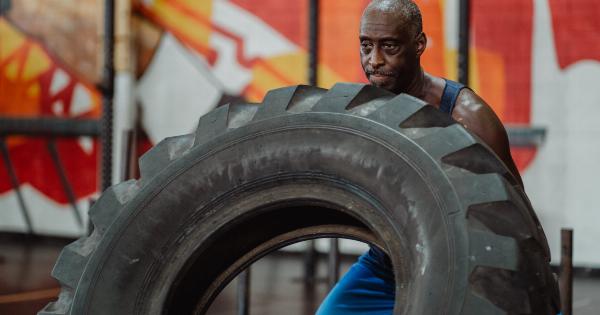Aging is a natural process that affects various aspects of our health, including our muscles. As we grow older, we tend to experience a gradual decline in muscle mass and strength, a condition known as age-related muscle atrophy or sarcopenia.
However, there are several strategies you can implement to protect your muscles from this decline and maintain optimal muscle function as you age. In this article, we will explore the importance of exercise, nutrition, and lifestyle choices in mitigating age-related muscle loss and promoting healthy aging.
The Role of Exercise in Muscle Maintenance
Regular exercise is crucial for maintaining muscle mass and strength throughout life. Engaging in both cardiovascular exercise and strength training can help preserve muscle tissue, enhance muscle protein synthesis, and minimize muscle wasting.
Cardiovascular exercises such as walking, swimming, or cycling not only promote cardiovascular health but also support overall muscle function. Strength training exercises, including weightlifting, resistance band workouts, or bodyweight exercises, stimulate muscle growth, increase muscle fiber size, and improve muscle strength.
The Importance of Protein Intake
Protein is an essential macronutrient for muscle health and plays a vital role in muscle maintenance during the aging process. As we age, our bodies become less efficient at utilizing dietary protein, potentially leading to muscle wasting.
To counteract this, it is essential to consume sufficient protein to support muscle repair and growth. Including high-quality protein sources in your diet, such as lean meats, poultry, fish, eggs, dairy products, legumes, and tofu, can help optimize muscle protein synthesis and protect against age-related muscle decline.
Building Muscle with Nutrient-Dense Foods
In addition to protein, certain nutrients are particularly beneficial for muscle health. Vitamin D, for example, plays a critical role in muscle function and strength.
It is important to maintain adequate vitamin D levels through sun exposure, fortified foods, or supplements. Omega-3 fatty acids, found in sources like fatty fish, walnuts, and flaxseeds, possess anti-inflammatory properties that can support muscle recovery and reduce muscle damage.
Consuming a variety of fruits, vegetables, whole grains, and healthy fats provides essential vitamins, minerals, and antioxidants necessary for overall muscle health.
Lifestyle Choices for Healthy Aging
Adopting a healthy lifestyle can significantly contribute to protecting your muscles from age-related decline.
Avoiding sedentary behaviors and incorporating regular physical activity into your routine can help maintain muscle mass and reduce the risk of sarcopenia. Additionally, certain habits like smoking and excessive alcohol consumption can accelerate muscle loss and should be minimized or eliminated. Sufficient sleep is also crucial, as it allows for proper muscle recovery and growth.
Prioritizing stress management techniques, such as meditation, yoga, or deep breathing exercises, can further support overall muscle health.
Strength Training for Muscle Maintenance
Strength training exercises are particularly effective in preserving muscle mass and strength as you age. Engaging in resistance activities two to three times per week can have a significant impact on muscle health.
It is important to vary exercise routines and target different muscle groups to ensure comprehensive muscle development. If you are new to strength training, seeking guidance from a qualified fitness professional can help you develop a safe and effective program tailored to your individual needs.
The Role of Hydration
Proper hydration is often overlooked but is essential for optimal muscle function and overall health. Dehydration can impair muscle performance, endurance, and recovery.
Make sure to drink adequate amounts of water throughout the day, especially during physical activity or hot weather. Monitoring your fluid intake and consuming liquids like water, herbal teas, and hydrating foods like fruits and vegetables can help maintain proper hydration levels and support muscle health.
Monitoring Medication and Hormonal Changes
Some medications or hormonal changes associated with aging can have a negative impact on muscle health. Certain prescription drugs may lead to muscle loss or muscle weakness as a side effect.
If you are concerned about the impact of any medications on your muscle function, consult with your healthcare provider. Additionally, hormonal changes, such as the decrease in testosterone levels in men or estrogen levels in women during menopause, can affect muscle mass.
Discussing hormonal changes with a healthcare professional could provide insights into potential strategies to preserve muscle health during these transitions.
Staying Consistent & Adapting to Challenges
Maintaining muscle health requires consistency and adaptability. It is important to make regular exercise, proper nutrition, and overall healthy lifestyle choices a long-term commitment.
While initial progress may be slow, sticking to your muscle maintenance routine will yield significant benefits over time. Be prepared to adjust and modify your program as needed, especially as your body ages and your fitness goals evolve.
Listen to your body, respect its limits, and consult with professionals when necessary to ensure a safe and effective muscle preservation strategy.
The Holistic Approach to Healthy Aging
Protecting your muscles from age-related decline is just one piece of the puzzle for healthy aging.
Embracing a holistic approach that encompasses other aspects of well-being, such as mental health, cardiovascular health, and cognitive function, can contribute to overall vitality and quality of life. By prioritizing regular exercise, proper nutrition, and healthy lifestyle choices, you can not only protect your muscles from age-related decline but also enhance your overall well-being as you age.






























